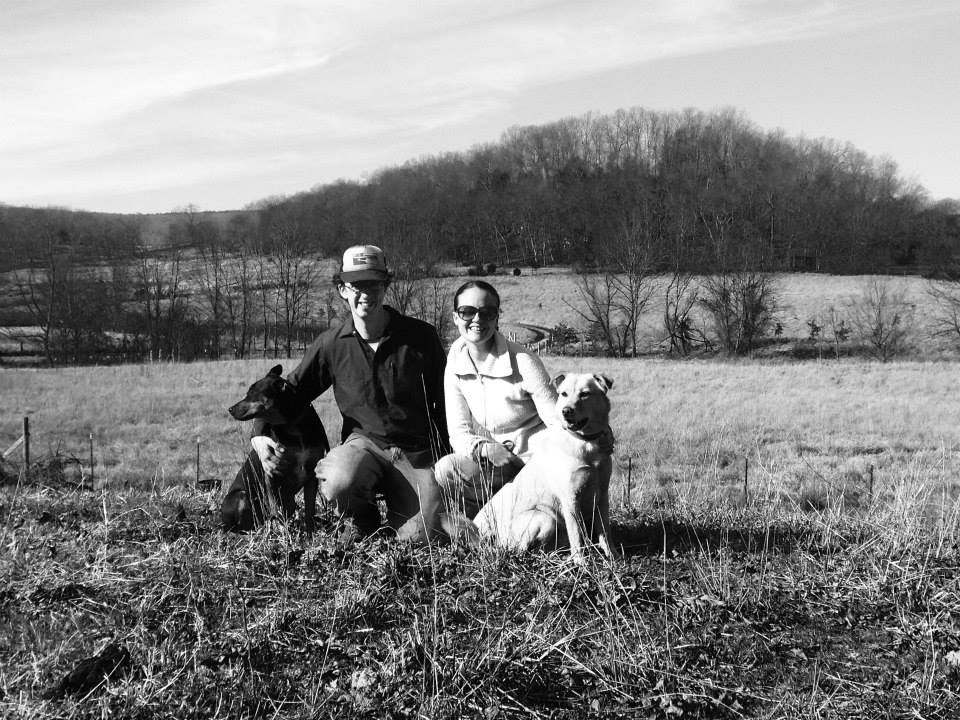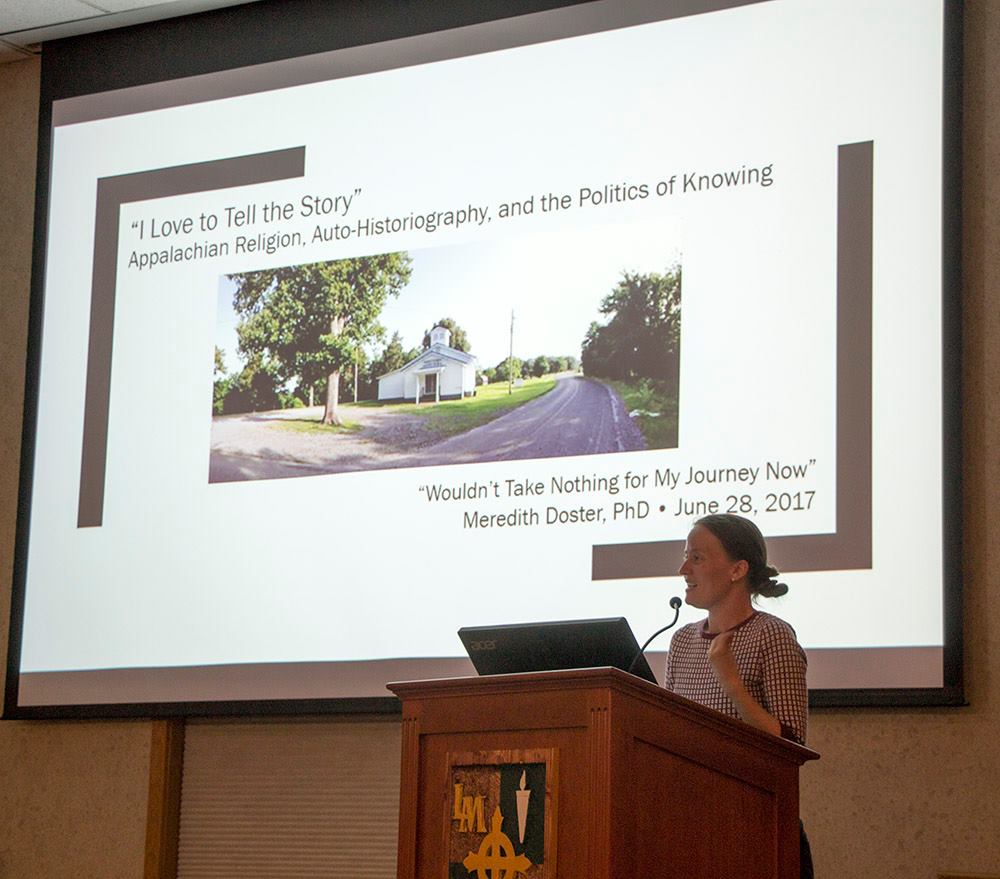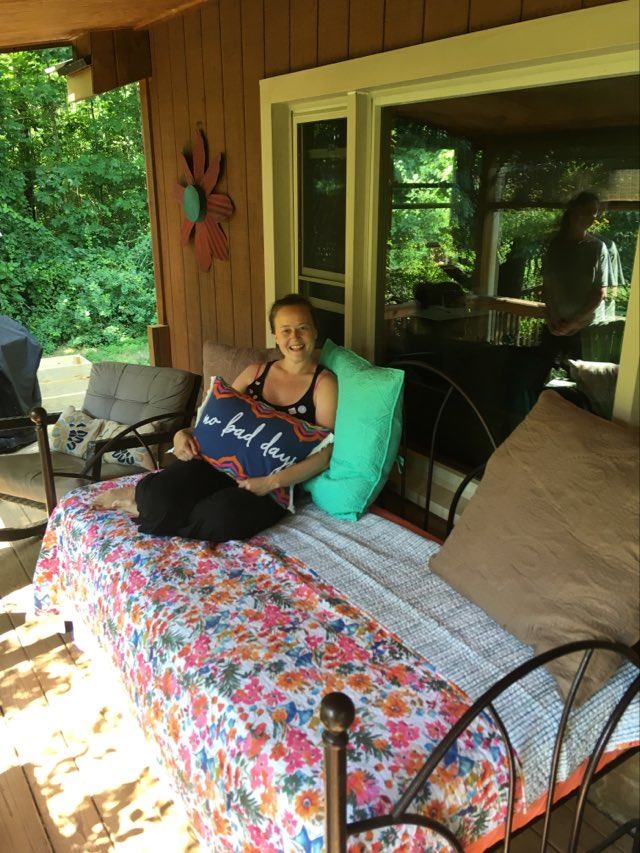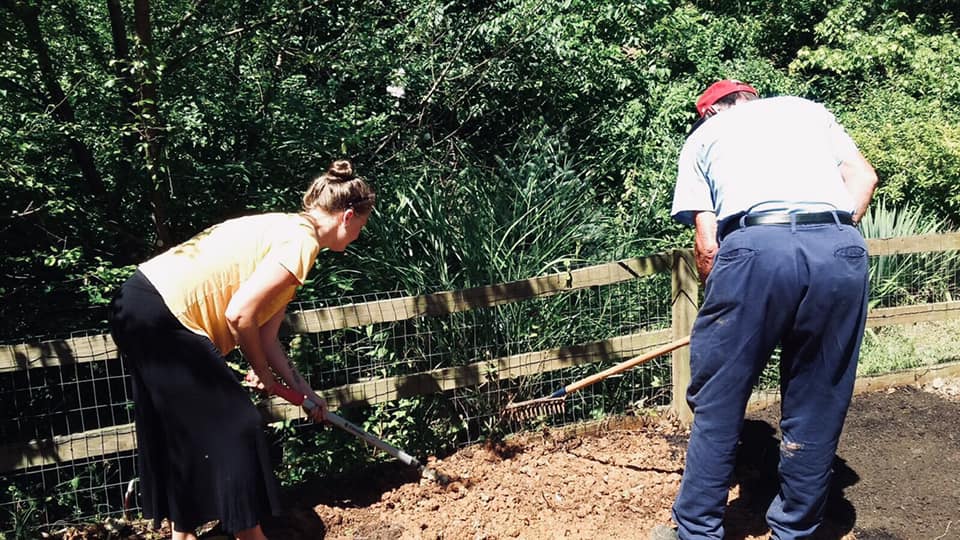Dog meet Dog
And then one day, it was time. Not necessarily right or perfect, but simply time itself. Hunkering down at home during COVID-19’s foreseeable future, my husband and I figured this could be the perfect season to introduce a new dog into the family. We decided long ago that our lives were built for four-legged expansion and our nine year-old shepherd mix, Zeke, has been enjoying a solo act for years. While Zeke loves the spotlight, he wasn’t always an only child. Beulah was the first dog we added to our family and our very best girl. It feels like lifetimes ago that we had to put her down well before her time. With Zeke’s coat graying around the jowls and his joints stiffening on the walks he tolerates solely for our sakes, we have been contemplating the possibility of once more adding to our pack. We’re excited for the youthful, boisterous energy that will rally us for long walks and misadventures, but this is not a step we take lightly. When we’re being honest, this welcoming of the fresh and new is part of how we’ll say goodbye when the time comes. We know from experience that we will fare better with another dog-in-waiting when Zeke takes his leave. And while we hope that’s several years off, there are no guarantees. There rarely are. And so, it’s not so much now or never, but simply now.
With Zeke in the backseat, we drove up to Mitchell County last weekend. At the recommendation of our fabulous local pet pantry, I had been messaging with the owner of a remarkable rescue operation located a few counties to the north. After looking at some pictures online, we scheduled a meet-and-greet. As we turned up the driveway and passed the barn, we had been made. A raucous chorus of yelps and barks and howls greeted us before we even opened our doors. From the car, I could see dog yards and single pens surrounded by a hillside where a herd of cattle was grazing in the distance. The welcome itself was overwhelming. Seeing and hearing so many different faces and sounds of need incarnate can be jarring. Sometimes, it’s easier to keep our distance from those awaiting their more than just human rights to food, shelter, and love. Some journeys, then, are about how we respond to those we encounter along the way. We were talking a good talk on the drive up. We would just meet some dogs and head back home to talk things over. But fate is a thing and any lingering resolve disappeared as we waited in the back field to meet some dogs. I’m not sure when our thinking shifted from whether to bring a new family member home to which dog would be leaving with us, but it did. When the time is right, it’s just a matter of fit.
We learned something about fit when Zeke surprised us at an adoption fair almost ten years ago. We were caring for my grandmother in Batesville, Arkansas, when it dawned on us. We could get a dog! Married for just a few years, we were still learning how much adulting was ours for the making. We were living in an old family home with a backyard we could easily fence in and the farm was only a short 20-minute drive away. So much was out of our hands as we learned how to navigate my grandmother’s decline. But a dog – a puppy, even – was something we could wrap our heads and hands and hearts around.
Batesville is a small town in a rural community where dogs are working animals with important jobs. While we planned on romping our dog-to-be through the farm’s fields and pastures, we were less interested in any highly-prized skillsets like coon treeing or duck hunting. We were simply excited for exuberant companionship. When we’re being honest, we also needed some puppy energy to remind us about other seasons of life, where you could train a loved one to remember things. Little did we know that one dog would teach us so much about death, too.
To know Zeke is to know about Beulah. Weaned too early from her mother and siblings, Beulah was waiting for us one rainy Saturday morning. We drove out to get her with a tiny leash we never used. Beulah fit into the palm of my hand and tried valiantly to climb into my sweater. She couldn’t get close enough. Tucked against the unfamiliar smell of my skin, she cried all the way home. We made all kinds of plans to put her in a crate and do the sensible things you do to train dogs. But Beulah’s whimper was enough to stymie the best of our intentions and she quickly became the center of our world. A yellow lab mix, Beulah easily won over my grandmother who liked to feed her scraps from the table. My grandmother could never remember Beulah’s name and one day christened her “Whitey.” When Zeke joined the family a few months later, my grandmother nicknamed our black-and-tan addition “Blackie.”
Much like this week’s seemingly impromptu trip to Mitchell County, Zeke came our way in his own perfect timing. Beulah had been with us for a few months and much as we tried, we could not be the dog she needed. And so, we found ourselves at the pet store after church one Sunday. We often ran errands on Sunday afternoons and had planned to stop in for a treat of some kind while my grandmother napped. We had been discussing how much we would benefit from another dog in the house, but were not necessarily planning to act on our musings. We were quite certain that a second dog would be for another day or time or season. But, as we learn time and again, some decisions are not ours alone.
I remember how warm it was that Sunday and how surprised we were to see crates and cages stacked up in the parking lot of an otherwise nondescript strip mall with a shoe store, an off-brand vitamin shop, and one of the county’s two Mexican restaurants. I also remember our excitement as we reconsidered our plans to look for a new chew toy or ball. Instead, we began taking a closer look at some of the dogs and puppies. We were new to parenthood, cutting our teeth on canines and elders. Far from experts, we thought we knew what we wanted. A puppy. A female. Something small and sweet. In many ways, we were looking for something that Beulah was not.
Beulah was far from an easy dog, but her imperfections were manageable until they became dangerous. When we first met Zeke, Beulah was a rambunctious lab mix with more energy than we could walk or run out in any given day. As we led Beulah toward the dogs we had preselected, she could not contain her excitement. Her energy level was so high that the adoption coordinator worried about the safety – of the dogs in her care, of us. After meeting Beulah, her fears were assuaged. The aggression genetically coded into Beulah’s inbred lineage would not surface for over a year. That day, it really was just excitement – the kind that should have a happy ending.
Our preferences notwithstanding, the dogs we tried to pair with Beulah cowered at her exuberance. There really can be too much of a good thing. We moved methodically through our list, hoping that one of our choices would work. The adoption coordinator was exceedingly patient. After Beulah scared each and every dog on our list, she stepped in and suggested we take a look at “Ramiro,” a young shepherd mix we hadn’t noticed. She thought that he might be confident enough to stand up to Beulah’s energetic overtures.
When one of the staff members let “Ramiro” out of his pen: pure magic. His crate had been tucked into a van parked on the lot and we didn’t know what to expect. “Ramiro” ran straight up to Beulah, wagging his tail in greeting as he bobbed down in front of her before batting her swiftly on the nose. She looked up in surprise as they took off running. They never looked back. It was love at first sight and we were all blindsided by it. It’s amazing what we can’t see until someone – or something – opens our eyes.
We had Beulah only a few short years before her behavior escalated in ways too dangerous for our home – or any other. The decision to put her down counts among the more difficult of our family’s life. How do you weigh the cost of the greater good? And what if that cost is death? We agonized over Beulah’s options. And still, her last day with us was beautiful. We played fetch for hours and enjoyed a final family walk. And then we loaded Beulah in the car – one of her most favorite places – and drove to the vet. We held Beulah close and loved on her as she took her last breaths. It was a gut-wrenching, heart-bursting day. And it was so final. There was no going back. There rarely is. As we left the vet’s office and drove home, Zeke was waiting at the door.
Zeke adapted quickly to life as a single dog, teaching us about the resilience that comes from the places we can’t know until we’re already there. In her final months, Beulah was not the kindest companion, but Zeke was a faithful friend. And he has been an exemplary solo dog ever since Beulah’s early departure – loving and kind to all creatures with the exception of cats. We knew Zeke would not be tricky to pair, but still. You don’t love and lose lightly. Zeke’s opinion was the one that mattered as we met possible additions to our family. Thinking back on the list of hopefuls that Beulah rejected one after the other, I had to smile. So much has changed since we first set out on this journey of companionship. Growing our hearts and home to meet a given season, we keep showing up to this thing called life.
We met two dogs at the rescue before we asked about the big black and tan hound dog we could see from the back field. From afar, he was bigger than we thought we were looking for. They always are. When the proprietor brought out “Luke,” he reminded me somewhat of Beulah – eager and excited to meet a new friend. After a successful initial greeting, we let both dogs off their leashes to see how they might get along unattended. It was pretty much perfect: some chasing and running before each dog headed off to his own corner of the field to look at the cows and eat grass.
It’s fascinating to watch Zeke and Luke-now-Ezra figure out this new arrangement. I’m also curiously watching our household adapt to its newest family member. It’s humbling how much we can learn from those entrusted to our care. So far, the adjustment period is going beautifully. And still, I notice that I am anticipating Beulah-like responses from this new-to-us dog who has shown zero indication of anything but goofy, oversized love. When memories of bared teeth and snapping jaws surface, I am reminded that love sometimes hurts us in unexpected ways. The wounds we inflict on those closest to us run deep. They smart beyond the grave. I am grateful for the lessons that Beulah gifted and know that she is with us still. She is present in my eagerness to do right by this new-to-us dog. She is present in that which we did not – could not – know before. Beulah’s is not just a presence marked by the tin we keep on the kitchen shelf, its floral green pattern masking the remnants of a life reduced, ashes to ashes. Hers is a presence that invites remembrance, joy, and sorrow – the bittersweet things of life and of death.
It’s not surprising that this introduction to the newest member of our family has become a story about those who came before. But that’s how it works when the next generation arrives; they remind us of those whose journeys are already intertwined with ours. When we talk about the ancestors, we often mean our people. That’s why this story about our new dog somehow circles back to my grandmother who nicknamed our now-aging shepherd “Blackie” before she died. When we’re being honest, we share more in common with our four-leggeds than we think, especially when we remember that death comes for us all. Looking back, I can see how the season that gifted my grandmother’s decline, and the addition of our first “fur-child,” offered lessons that seem contradictory only at first glance. To love is to know loss. And my husband and I loved my grandmother and Beulah – fiercely. In their own ways, each is with us now as we grow our family once more.
My husband and I stayed with my grandmother, and with Beulah, after they passed. Holding a body in transition is not easy. Staying present to what’s left behind is hard work. My grandmother had already died when we were called to her bedside. I don’t know what compelled me to do so, but I climbed into bed with my grandmother’s body and stayed there for hours while we waited for those in charge of her transport to arrive. After my parents and grandfather left, my husband and I sang and cried before settling into the quiet impossibility of that holy moment. Flesh of my flesh. Heart of my heart.
We held Beulah’s body, too, after the drugs stopped her heart and slowed her breath until all we could hear were our own sobs. Some things you cannot know until you hold life in your hands and let it go. As we reckon in this season with the calculus of choice itself, I like to think that our learning can honor this deep truth: life and death come for us all. Even then, they do not play fair. When we hold death gently among us, climbing into its arms to be comforted by that which awaits us all, some of our choices become clearer. Sometimes, we get to learn that so many choices aren’t ours to make at all. I like to think that our newest family member, Ezra, will live into the examples set by the two-and four-legged creatures who journeyed with us until their end. I like to think that we have learned from those who lived and died among us. I also like to think that he’ll just be a great dog. What I know for certain is that that my grandmother would have smiled at Ezra’s big paws and floppy ears. She would not have remembered his name, but she would have reached out her hand and loved him.
April 7, 2020



